The Day of the Jackal (1973)
'He is a mercenary. He kills for money...'
There’s a marvellous scene in Fred Zimmerman’s The Day of the Jackal (1973)— right at the beginning of the film: with a line of chauffeurs (suited and booted) squashing their Gitanes into the gravel, firing up their black presidential Citroens and sweeping through the stone gates of the Élysée Palace, the rear pneumatic suspension hitting the rainy Parisian cobbles with a thwack: the power of the French State: discreet, stylish, clinical— and ruthless. Despite the film’s relative failure at the box office, The Day of the Jackal became popular after numerous television screenings on rainy British Bank Holiday Mondays. And rightly so, as it’s a terrific film. The critics agreed at the time.
In a way the star(s) of the picture is (are) as much the cars— the Citroen DS and the 1960 Alfa Romeo Giulietta Spider— almost as much as the urbane, deadly Mr. Fox— champion of the Paisley cravat. My grandfather had the exact car, albeit in Primrose Yellow, kept with his beloved Lancias in a tarred 18th century Buckinghamshire barn, and I used to sit in it— surreptitiously—and imagine I was a hired gentleman assassin, driving across France. With overnight stops in those dusty, slightly spooky, chateaux hotels: leaflets and simulated wood formica in reception and an excellent, if empty, restaurant with one Michelin Star.
I cannot stress enough how good Edward Fox is in The Day of the Jackal— then a relative unknown, apart from his performance as Viscount Trimingham in Joseph Losey’s The Go-Between (1971). It’s perfect casting, and it has to be the role he will be best remembered for— like a Coldstream Guards or SAS officer gone rogue: fit, wiry and tough, in his waisted, horsy Savile Row get-up (one button, slanted pockets), Cavalry Twills; an urbane gentleman player turned professional, somebody who, if provoked, could suddenly turn very nasty indeed. Geoffrey Household has a similar protagonist in Rogue Male (1939), the gentleman assassin stalking Hitler, like a Highland stag. More than a whiff of John Buchan. This is how Ian Fleming’s Bond is supposed to be: a ruthless assassin, a bland, masochistic, Eton-educated agent of government. In a Savile Row suit. Not like a bouncer in a tight Tom Ford suit. Or a Mr. Universe bodybuilder: buffed, ripped and earpiece intact. Like one of those security men standing outside Chanel in Sloane Street.
The Day of the Jackal has to be the ultimate political thriller, or, at least it has all the trappings: the mechanical typewriters, the swirling cigarette smoke, glass ashtrays, the head of Special Branch telephoned at four in the morning (“Who is it, darling?”), anonymous flats in Victoria mansion blocks, the game of Cat and Mouse, the Corridors of Power— and all the glamour of internationalism which, in the very early 70s, actually meant for something, as opposed to the hell of the modern day airport: shell-suits, shoe-removal, over-familiar frisking and package holidays in the Sun.
France— and All Things French— was (were?) fashionable in 70s Britain, just before our entry into the Common Market (as it was then described). The Day of the Jackal is a world of surly border guards, traveller’s cheques and passport control. Red and white striped border poles (like a barber) and “May I see your Papers.” As an auction specialist I used to go on business— now and again— to Switzerland, to suck up to a rich industrialist (fertilisers) with a significant antiques collection, flying out of London from City Airport. Landing at Zurich and walking through passport control was like being in a Fleming, Forsyth or Deighton thriller: the immaculate, anonymous stands selling bland, executive watches in spotless stainless steel, and Swiss chocolate, with that particular Swiss red colour on the wrapper, contrasting against the gold foil: “Velcome to Switzerland, Mister Honey. Business or pleasure?”
I gather that Frederick Forsyth had problems getting his book published. The Big Boys liked the book but wrung their hands over the inevitable conclusion. “There’s no tension”, they said. “But Charles de Gaulle is still alive!”, they cried. Which just goes to show, doesn’t it, that publishers quite often get things wrong. But isn’t it a bit like Columbo? Starring Peter Falk? We know whodunnit, but the fun’s in Columbo piecing the jigsaw together; watching the suave villain’s discomfort as the ramshackled Columbo goes for the jugular. Nothing like a bit of good old voyeurism, is there? Michael Powell and Hitch understood this only too well— in Peeping Tom (1960) and Rear Window (1954). Michel Lonsdale’s performance as Deputy Commissioner Claude Lebel, the shabby police detective (pigeons) tasked with tracking down the Jackal is classic. I’m a big fan of M. Lonsdale, apparently the son of a British army officer. And like Herbert Lom, he’s good at deranged villains (The Pink Panther series and Moonraker). Incidentally, I should have mentioned earlier that The Day of the Jackal is about an OAS (army officers turned terrorist) plot to assassinate Charles de Gaulle, in revenge for French withdrawal from Colonial Algeria. But you knew that.
But watching it again, last night, I had forgotten that the film, which was made in 1973, is actually set in 1961. It’s a weird hybrid of 60s and 70s taste, which, perhaps, must have seemed more obvious at the time, but now looks decidedly retro. The opening scenes look like something from a 60s film, yet Madame de Montpelier’s (Delphine Seyrig, ruthlessly seduced by the Jackal) clothes appear to be early 70s in taste, Yves Saint Laurent, or something. And the end of the film is shot in documentary style, at the 14th July parades in Paris, with real crowds (long hair and flares), real tanks, real policemen and real machine-guns. As you may have gathered, I like The Day of the Jackal very much indeed. Under Fred Zimmerman’s direction, it’s put together with meticulous precision and economy, it’s beautifully made (as so many films at that time were) with lovely, lush cinematography (sunrise over the Sacré Coeur), stylish casting, energy and pace. As political thrillers go, it’s a hard one to beat…
I watched The Day of the Jackal (1973) on Amazon Prime Digital Download. It’s also available on DVD (bargain price of £4.99) and Blu-ray. A first edition of the novel might set you back several hundred quid.
You’ve just been reading a newsletter for both free and 'paid-for' subscribers. I hope you enjoyed it. Thank you to all those of you who have signed up so far.
Two options on Luke Honey’s WEEKEND FLICKS. Cinema for Grown Ups: ‘Paid-for’ subscribers get an extra exclusive film recommendation every Friday morning, plus full access to the complete archive— which should list over a hundred films by the end of the year. It costs £5 a month (or £50 a year)— a bargain, frankly, when you compare it to a few cups of coffee or a pint of beer in the pub. ‘Free’ subscribers get access to the Sunday newsletter, plus the ‘free subscriber’ films in the archive. Either option is a good bet.
In the meantime, have a relaxing and cinematic Sunday….


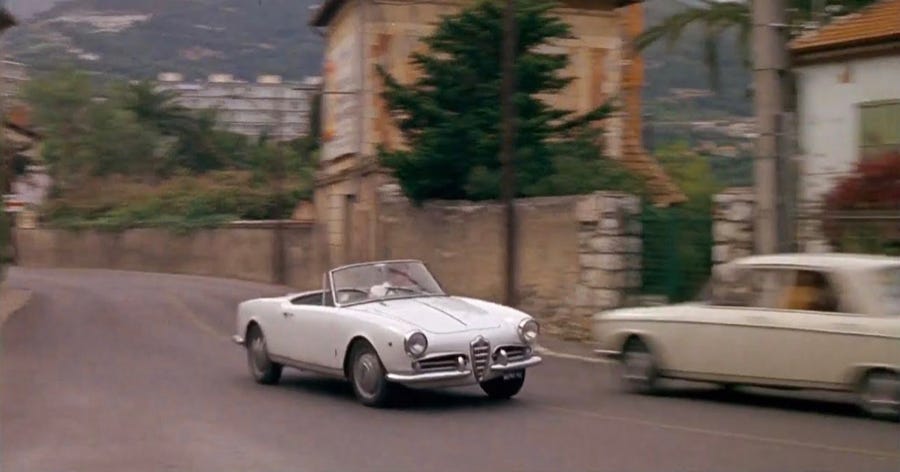
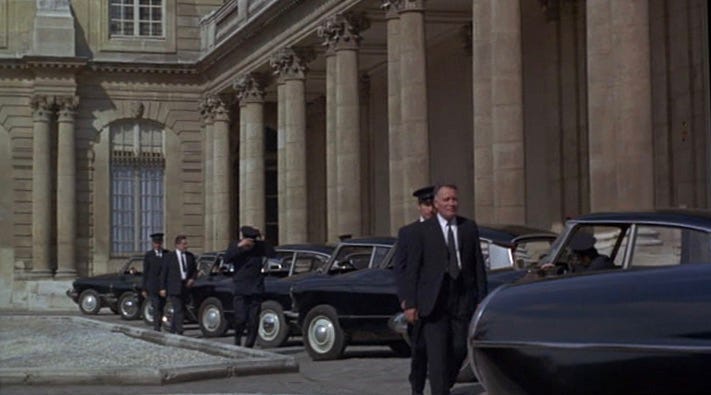
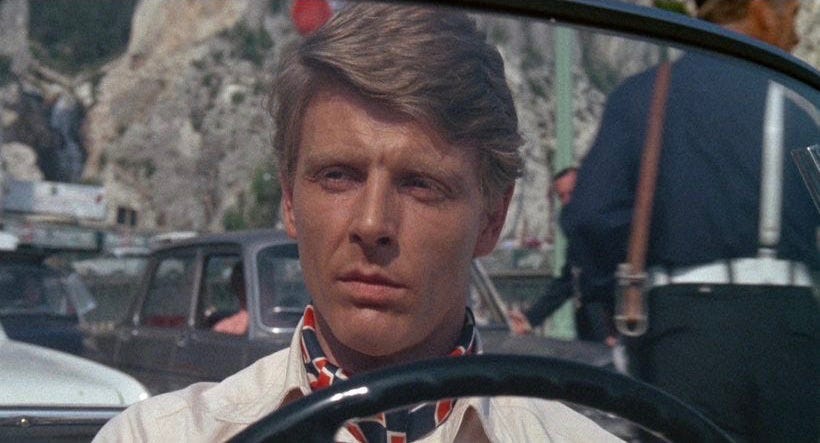
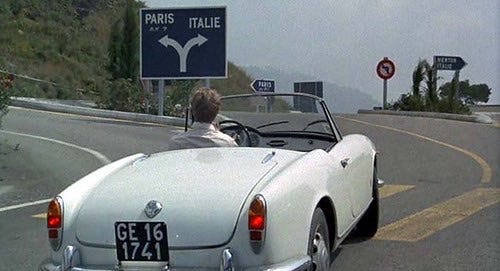
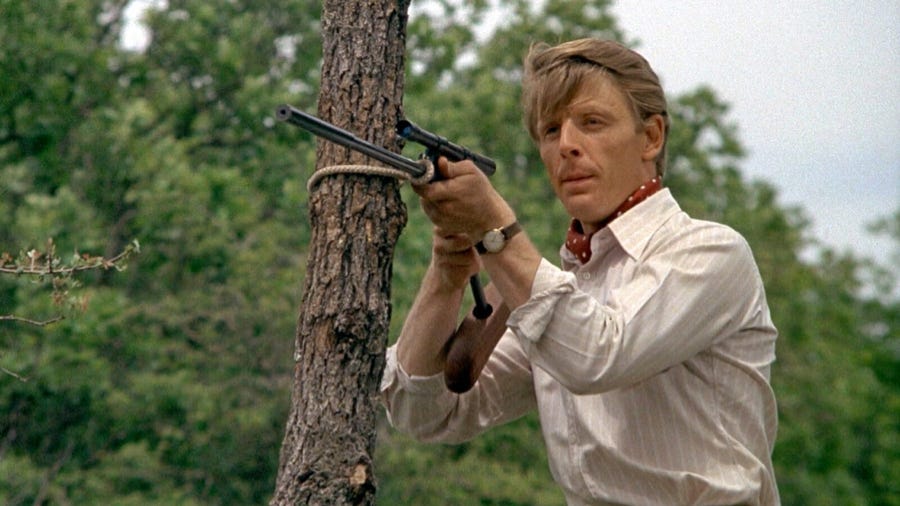
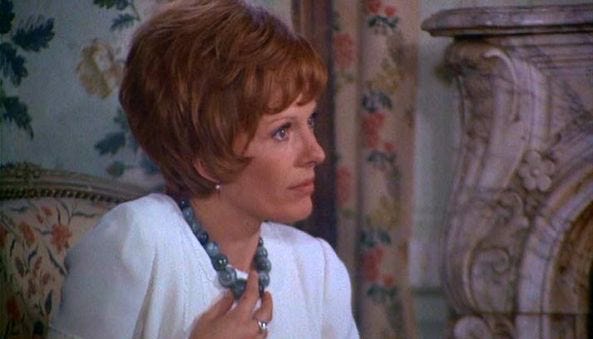
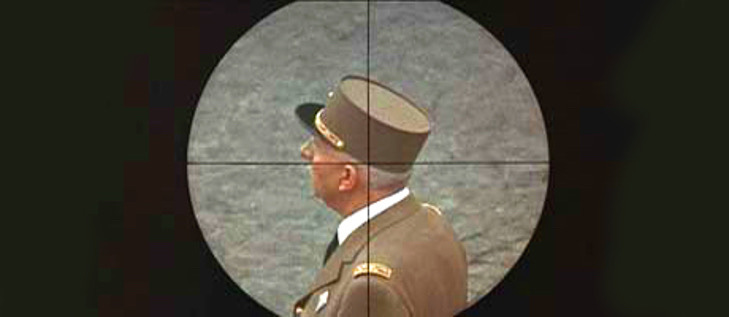
You are efficiently working your way through my list of favourite films! I haven't seen this for ages.. but do I remember a sinister scene in a forest practising shooting water melons?
It’s a sensational film, taut, tense, hard-edged and brilliantly acted. Sinden and Brittan are superb as the Scotland Yard detectives.
“Commissioner, how did you know whose phone to tap?”